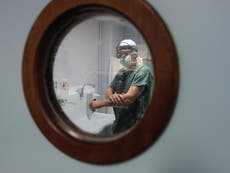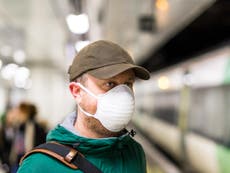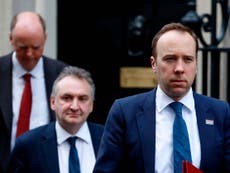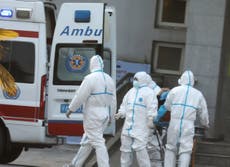Labour should be asking the government tough coronavirus questions – but without point-scoring
Her majesty’s most loyal opposition should broadly live up to its name but become ‘mostly loyal’

While the government is in the front line of the battle against the coronavirus, the crisis also poses dilemmas and problems for the opposition parties.
In a national emergency, the tradition is that the official opposition supports the government. But that should not preclude it asking searching questions about the strategy pursued by ministers.
After rightly criticising Boris Johnson for his slow initial response to the outbreak, Labour was broadly supportive when he ended his disappearing act and displayed the visible leadership the country needed. But the criticism from Labour has mounted amid concern that the UK was not following European countries in bringing in “social distancing” measures. The Liberal Democrats accused Johnson of “playing catch-up with the rest of British society”. Ed Davey, their acting leader, said: “Conservative ministers must improve their performance significantly in the coming weeks.”
Most of Labour’s criticisms were valid. Frontbenchers including Jonathan Ashworth, the shadow health secretary, pointed out the uncertainty caused by selective media briefings, such as on the plan to ask the over-70s to stay at home. Lisa Nandy, the Labour leadership candidate, called the government’s communications a “shambles”. Downing Street has now bowed to Labour’s pressure for daily televised press briefings to ensure the public gets a more coherent message.
Like the government, the opposition has a difficult balancing act and doesn’t always get it right. John McDonnell, the shadow chancellor, went over the top when he said that “it seems No 10 is following Donald Trump’s lead yet again”. Whatever your opinion of Johnson, on coronavirus he has been much more assured than a US president who called it a “hoax” and accused the Democrats of “politicising” it, and two weeks later declared a “national emergency”.
Jeremy Corbyn has made sensible proposals for rent and mortgage holidays and full statutory sick pay for all. He has branded the government “complacent”, which many would regard as unfair. Corbyn was accused by some commentators of “point-scoring” for saying the NHS should not have to pay for any beds provided by the private health sector. He tweeted: “It’s disgraceful that private healthcare companies are making a profit out of the coronavirus. The beds should be used by the NHS. Rent free.” However, Labour and the GMB union had called for such beds to be used.
McDonnell was on safer ground when he called on Johnson to “get off his backside”, and show international leadership by calling for a coordinated G7 economic response to the crisis. Gordon Brown, who chaired a successful “£1 trillion summit” of G20 nations in 2009 during the financial crisis, called for a “global economic response” by governments and central banks to stop coronavirus causing a world recession.
Such criticism appeared to sting Johnson into action, an example of opposition politicians playing a useful role. Johnson telephoned several foreign leaders, calling for “an internationally coordinated response to the outbreak”. G7 leaders will speak by phone today.
Opposition parties are being briefed today on emergency legislation to help the government tackle the crisis. Some opposition MPs will have genuine concerns on civil liberties grounds. The measures will likely include powers for the police to detain and forcibly quarantine people at risk of infecting others, and provision for £1,000 fines. Labour should and probably will support the legislation in principle to enable it to proceed quickly through parliament.
Although Chris Whitty, the chief medical officer for England, works closely with his counterparts in Scotland, Wales and Northern Ireland, there have been some tensions between Downing Street and the SNP-led Scottish government. Nicola Sturgeon, the first minister, was accused of jumping the gun by announcing a decision taken by the Cobra emergency committee. The Scottish government took a different view to London by banning mass gatherings of more than 500 people, and opposes the plan for the over-70s to remain at home.
Her majesty’s most loyal opposition should broadly live up to its name but should become “mostly loyal”. It should continue to play a vital role in holding the government to account. But it should resist the temptation to slide into political point-scoring.







Join our commenting forum
Join thought-provoking conversations, follow other Independent readers and see their replies